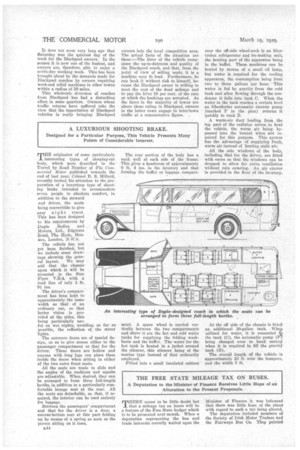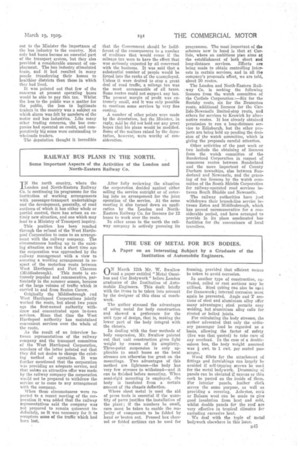THE FREE STATE MILEAGE TAX ON BUSES.
Page 70

Page 71

If you've noticed an error in this article please click here to report it so we can fix it.
A Deputation to the Minister of Finance Receives Little Hope of an Alteration to the Present Proposals.
THERE seems to be little doubt but that a mileage tax on buses will be a feature of the Free State budget which is to be presented next month. When a deputation representing the bus and trade interests recently waited upon the
Minister of Finance it was informed that there was little hope of the plans with regard to such a tax being altered.
The deputation included members of the Society of Irish Motor Traders and the Fairways Bus Co. They pointed Out to the Minister the importance of the bus industry to the country. Not only hadbuses become an essential part of the transport system, but they also provided a considerable amount of employment. The bus industry stimulated trade, aud . it had resulted in many people transferring their homes to healthier districts than those in which they had lived.
It was pointed out that few of the concerns at present operating buses would be able to pay this tax. Whilst the loss to the public was a' Matter for the public, the loss to legitimate traders in the country was a subject on which alarm was felt by members of the motor and bus industries.' Like many other trading concerns, the bus .Cfenpanics had operated on credit, and comparatively big sums were outstanding to wholesale traders.
The deputation thought it incredible that the Covernment should be kaliffereet of the consequences to 4i number of creditors that would ensue if the mileage tax were to have the effect that was seriously expected by all concerned with the business. It was said that a substantial number of people would be forced into the ranks of the unemployed. Unless it were desired to stop a great deal of road traffic, a mileage tax was the most unreasonable of all taxes. Some routes could not support any tax. The present margin of profit was extremely small, and it 'was only possible to continue some services by very fine costing.
A number of other points were made by the deputation, but the Minister, in reply, said he did not hold out any great hopes that his plans would be modified. Some of the matters raised by the'deputation, however, were worthy of consideration.




















































































































